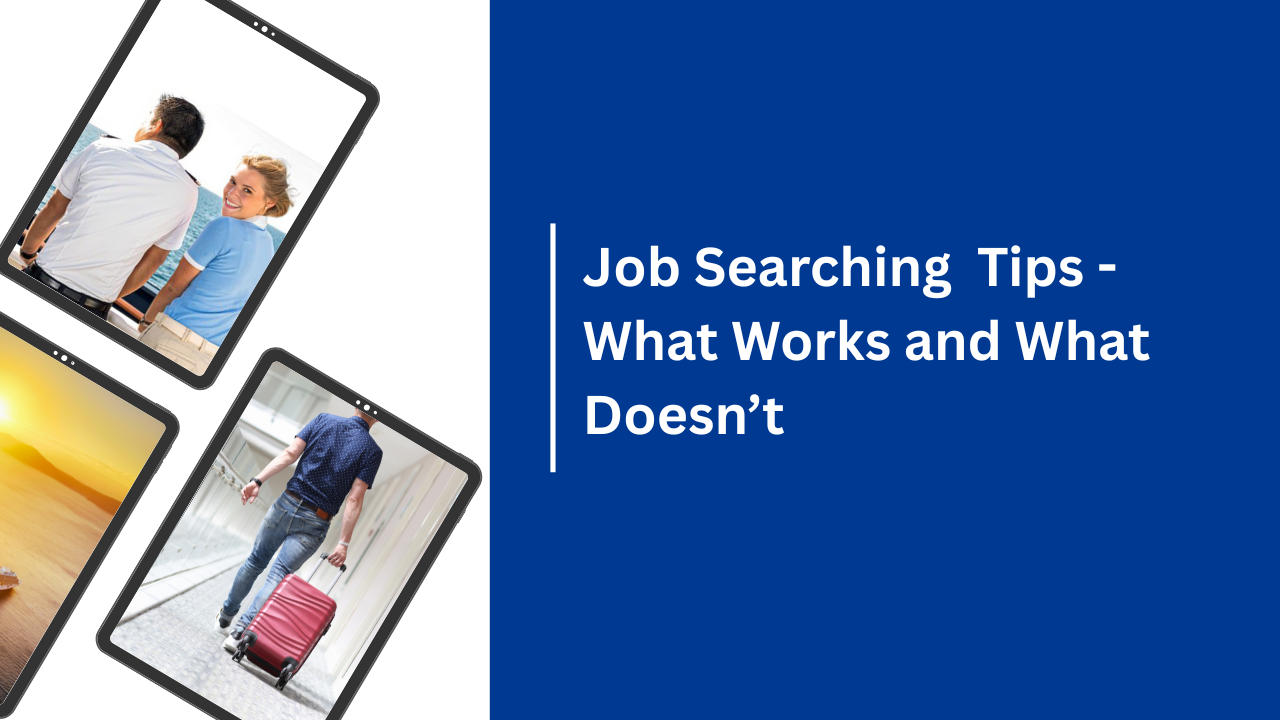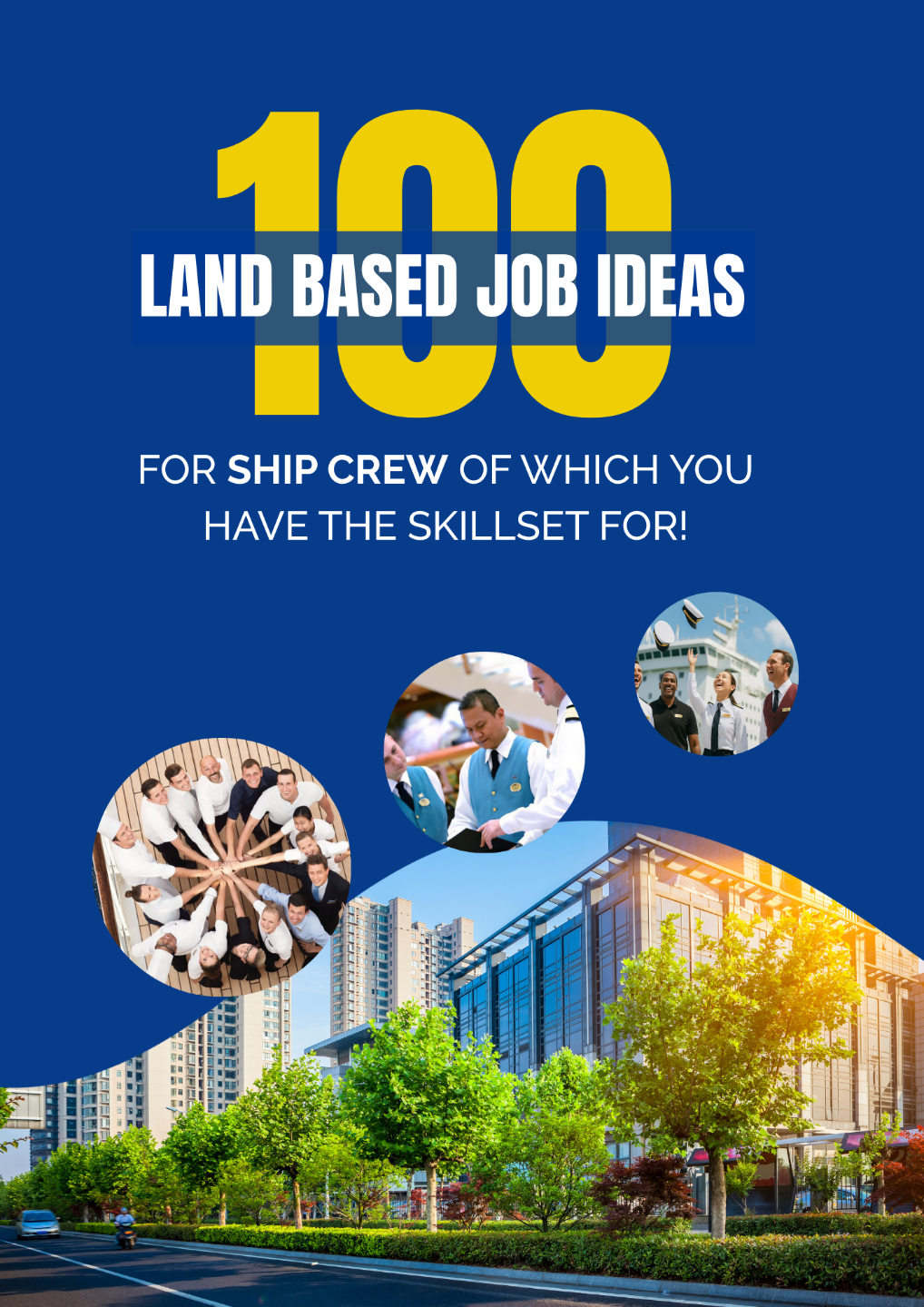Job Searching Tips for Ship Crew - What Works and What Doesn’t

Job searching is honestly one of the hardest, most confusing parts of leaving ship life. I mean, think about it – after years of working onboard where everything from your schedule to your next contract was sorted for you, suddenly you're staring at a blank screen with a million job platforms and zero clue where to start.
Where do I even begin? What can I actually do? Will anyone even hire me?
Most crew think the answer is simple: "I'll just go on Indeed (or whatever) and start applying." And sure, that might lead somewhere eventually... but usually it just leads to frustration, radio silence, and feeling like you're shouting into the void.
Because here's the thing – job searching on land in 2025 isn't just about sending out resumes. It's become this whole strategy game. But the good news? You can learn how to play it, starting today.
When I talk to crew about job searching, most fall into one of two camps: you either just need a job, any job, to get off ships ASAP, or you want to find the right job – one that actually fits your new life on land. Both are totally valid, and both need different approaches.
If You Just Want a Job and Need Off Ships ASAP
Look, sometimes you just need to get out. Maybe your contract is ending, maybe you're burned out, maybe you've just had enough. I get it. Online job platforms like JobStreet, SEEK, Indeed – they can definitely help. But scrolling and applying blindly? That's not going to cut it.
Here's what actually works when you're in "any job will do" mode:
Stop searching by job titles and start using keywords instead. This was a game-changer for me. Instead of searching for "Bar Waiter," try "Customer Service" or "Beverage Attendant" or "Sales Support." You'll suddenly find way more options, and half of them probably never occurred to you.
Make your resume sound like you live on land. I know it sounds obvious, but so many crew write resumes that scream "I work on a ship!" Try "Exceeding sales targets in a high-volume, fast-paced environment" instead of "Worked on cruise ships." Same experience, different language.
Apply fast, not last. New job listings get bombarded in the first 48 hours, then they kind of fade into the background. Set up alerts and jump on things early while there's less competition. And don't apply to 100 jobs at once – that's just setting yourself up for disappointment. Pick 5-10 roles a week that actually fit and tweak your resume slightly for each one.
Follow up when you can. Most people don't bother, which is exactly why it works. If a listing has contact info, a quick polite message shows you're actually interested, not just mass-applying to everything.
But here's the real talk – you're going to get rejected. You're going to hear nothing back sometimes. That doesn't mean you're not good enough. It just means you're learning how this whole system works, and it's different from the ship world where everything was more straightforward.
If You Want the Right Job for Your New Life
Maybe you're not just looking for any job. Maybe you want something that actually suits your next chapter – more stability, better hours, something you might actually care about. That's where strategy really matters.
Start with your land life budget. I know, I know, budgeting isn't fun. But how much do you actually need each month? Rent, food, transport, a little savings, maybe some fun money. Once you know that number, you've got a salary baseline to work from.
Ask yourself what would make work feel good now. Maybe you're tired of 10-hour days and want something with actual work-life balance. Maybe you miss being in charge and want to manage a team. Maybe you want to learn something completely new. Get clear on what matters to you today, not what used to matter at sea.
Think skills, not titles. You're not "just a Cabin Steward." You're someone who's great at time management, customer service, working independently under pressure. When you think in terms of skills, suddenly way more paths open up. And if you haven't grabbed the 100 Land-Based Jobs Guide yet, do it – it's full of job ideas based on actual shipboard experience that might surprise you.
Use filters like they're your best friend. Don't just type random job titles and hope for the best. Filter by salary range, location, contract type, remote work options. Save yourself some time and actually narrow down to stuff that makes sense.
LinkedIn is your friend for exploring what's possible. Look up ex-ship crew, see what they're doing now, read their stories. It's motivating and gives you ideas you never would have thought of.
And here's something important – you don't need to have it all figured out. You just need to start. Clarity comes from action, not the other way around. I spent months trying to figure out the "perfect" next step before I realized I just needed to start somewhere.
Job searching isn't just about applying online. It's this mix of strategy, self-awareness, putting yourself out there, and honestly, timing. You'll get rejected. You'll send applications into the void and hear nothing back. That's not a reflection of your worth – it's just how the system works.
But here's what I've learned: you can figure this out. And once you do, it gets so much easier. The first few rejections sting, but then you realize it's just part of the process. The first few interviews feel scary, but then you remember you've handled way more stressful situations at sea.
You've got this. You just need to start.



